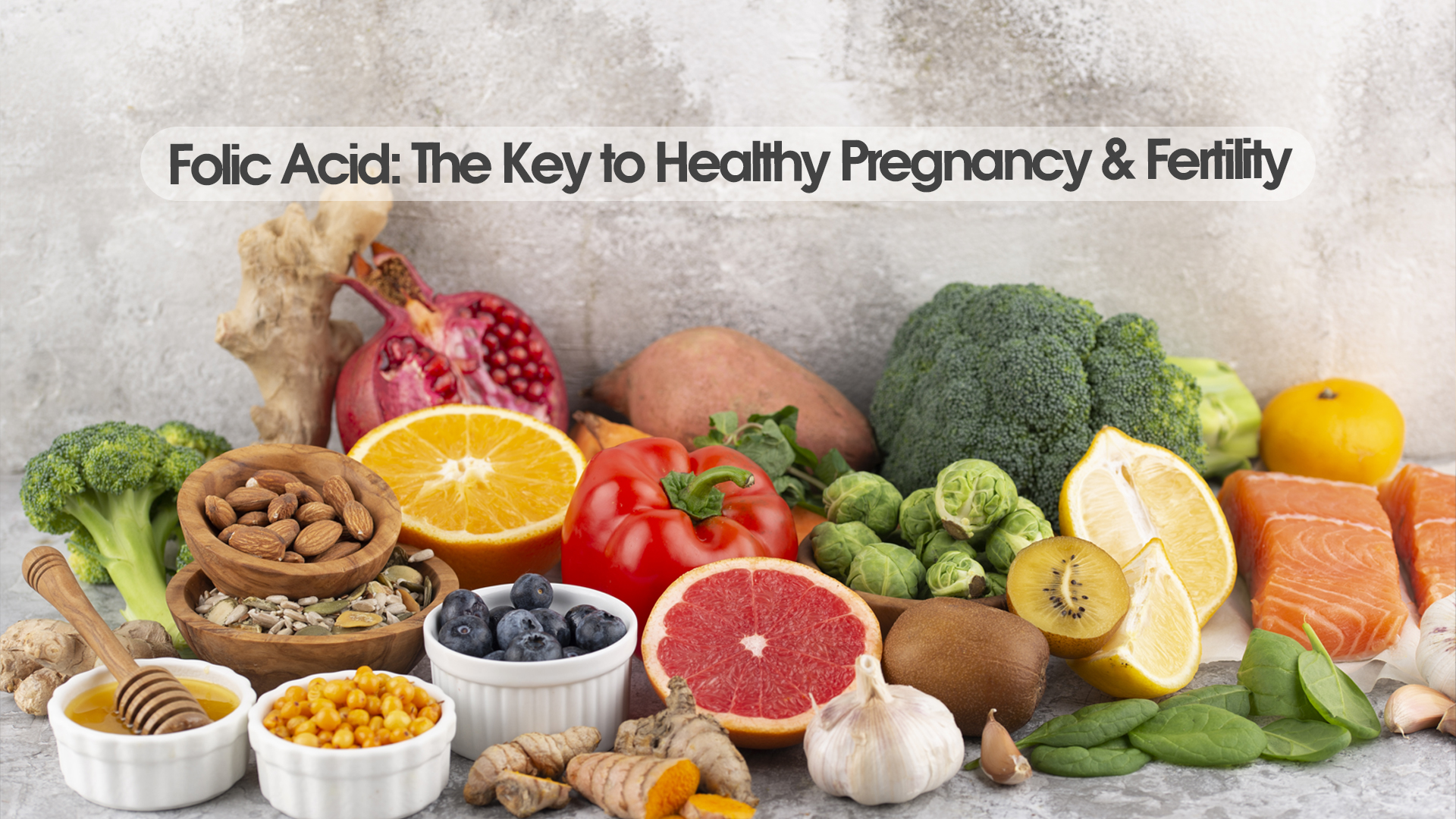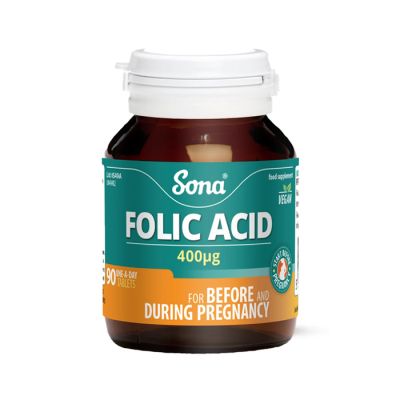THE VITAL ROLE OF FOLIC ACID IN PREGNANCY AND FERTILITY
Hanz DG

Folic acid, also known as vitamin B9, is a water-soluble vitamin that plays a crucial role in maintaining overall health. However, its significance becomes especially pronounced during pregnancy and in matters of fertility. In this article, we will delve into the importance of folic acid in pregnancy and fertility, exploring how it can positively impact both maternal and foetal health.
Folic Acid: The Basics
Folic acid is a synthetic form of folate, a B-vitamin found naturally in many foods. It is essential for the production and maintenance of new cells in the body, making it a critical nutrient for pregnancy and fertility.
Neural Tube Development
One of the most well-known roles of folic acid is its involvement in neural tube development. The neural tube forms the baby's brain and spinal cord during the first month of pregnancy, often before a woman even knows she's pregnant. Sufficient folic acid intake before and during pregnancy can significantly reduce the risk of neural tube defects, such as spina bifida and anencephaly. These serious birth defects can lead to lifelong health challenges for the child.
Red Blood Cell Formation
Folic acid is also vital for the production of red blood cells. During pregnancy, a woman's blood volume increases to provide oxygen and nutrients to the growing foetus. Folic acid is essential for preventing anaemia, a condition characterised by insufficient red blood cells, which can lead to fatigue, weakness, and developmental problems in the baby.
DNA Synthesis and Repair
Folic acid is integral to DNA synthesis and repair. This is crucial for the rapid cell division that occurs during foetal development. Proper DNA synthesis ensures that the baby's cells develop correctly and reduces the risk of genetic abnormalities.
Folic Acid and Fertility
Fertility is the ability to conceive and carry a pregnancy to term successfully. Folic acid plays a less direct but equally vital role in fertility.
Ovulation
Folic acid may impact fertility by helping regulate ovulation. Some studies suggest that women who take sufficient folic acid have more regular menstrual cycles, which can increase their chances of conceiving. Additionally, folic acid may improve the quality of eggs produced during ovulation.
Hormone Regulation
Folic acid is involved in the metabolism of hormones, including those responsible for regulating the menstrual cycle. By promoting hormonal balance, it can increase the likelihood of successful conception.
Sperm Health
Folic acid is not just essential for women; it also benefits male fertility. It helps in the production of healthy sperm by supporting DNA integrity and cellular division. Low levels of folic acid in men may lead to sperm abnormalities and reduced fertility.
Recommended Folic Acid Intake
The recommended daily intake of folic acid varies depending on age, gender, and life stage. For women of childbearing age and pregnant women, the recommended daily allowance is typically 400-600 micrograms (mcg). However, some healthcare providers may recommend higher doses, especially for those with certain risk factors or medical conditions.
Food Sources of Folic Acid
While folic acid supplements are widely available, it's essential to incorporate folate-rich foods into your diet. Natural food sources of folate include:
Leafy greens (spinach, kale, and broccoli)
Legumes (lentils, chickpeas, and black beans)
Fortified cereals and grains
Citrus fruits (oranges and grapefruits)
Avocado
Asparagus
Eggs
Conclusion
Folic acid is a small but mighty nutrient with a profound impact on pregnancy and fertility. Its role in neural tube development, red blood cell formation, and DNA synthesis during pregnancy is crucial for ensuring the health of both the mother and the baby. Moreover, it plays a subtle yet vital role in fertility by regulating ovulation, hormone balance, and sperm health.
To safeguard maternal and foetal health, it's essential for women of childbearing age to maintain an adequate intake of folic acid, either through dietary sources or supplements, as recommended by their healthcare provider. By understanding and prioritising the importance of folic acid, we can enhance the chances of healthy pregnancies and support overall reproductive well-being.


